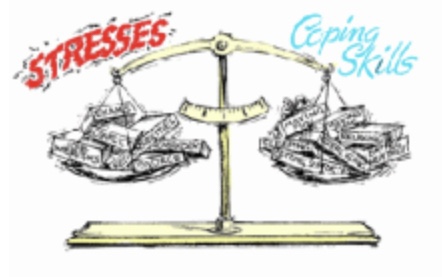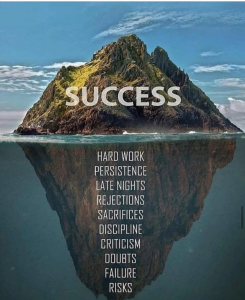Here are my takeaways from HBR’s 10 Must Reads: On Mental Toughness, Part 3.
Stress can actually be a positive force if you know how to harness it. Think back to moments in your life when you experienced significant personal or professional growth or when you performed at your very best. Chances are, those moments were marked by a certain degree of stress or challenge. Those who adopt the mindset that “stress enhances performance” tend to exhibit better work performance and experience fewer negative health effects compared to those who view stress as debilitating.

Steps to transform your response to stress:
1. See it:
Instead of ignoring or dwelling on stress, simply acknowledge it by giving it a name. For example, you might say, “I am stressed about our eating habits” or “I am stressed about my health diagnosis.”
Neuroscience research by Matt Lieberman shows how just acknowledging your stress can move reactivity in your brain from automatic and reactive center’s to more conscious and deliberate ones. In one study, participants in the brain scans were shown negative emotional images. When asked to label the emotion the images invoked, neural activity moved from the amygdala region (the seat of emotion) to the prefrontal cortex, the area of the brain in which we do our conscious and deliberate thinking. In other words, purposefully acknowledging stress lets you pause your visceral reaction, allowing you to choose a more enhanced response.
Mindfulness and similar practices can help you acknowledge and reshape your reaction to stress, as everyone responds differently, such as experiencing a racing heart or heading to the refrigerator. Being aware of these reactions helps free you from their grip and enables you to focus on more productive responses.
2. Own it:
Understanding that we often experience stress more intensely when it involves matters that are genuinely important to us is key to owning stress. Stress signals that we care and that the stakes are high. Recognizing this fact unleashes positive motivation because, deep down, we understand that meaningful achievements aren’t always effortless.
3. Use it:
The evolutionary goal of the stress response was to help the body and mind into enhanced functioning, to help us grow and meet the demands we face. When the body encounters stress, it pumps hormones such as adrenaline and dopamine, which fuel the brain and body with blood and oxygen. It propels the individual into a state of increased energy, heightened alertness, and narrowed focus. This stress response can be used very effectively. How we channel or employ this response is very important. Simply reframing your response to stress as something that is beneficial can be helpful.
Remember that your relationship with stress can be transformed from one of resistance to one of empowerment. By recognizing, owning, and effectively utilizing stress, you can tap into its potential for personal growth and enhanced performance. Embrace stress as a sign that what you’re dealing with matters, and consider it a force that can drive you toward your goals. With the right mindset and practices, you can turn stress into a valuable ally on your journey to success and well-being.












9 thoughts on “Stress Can Be A Good Thing”
Comments are closed.